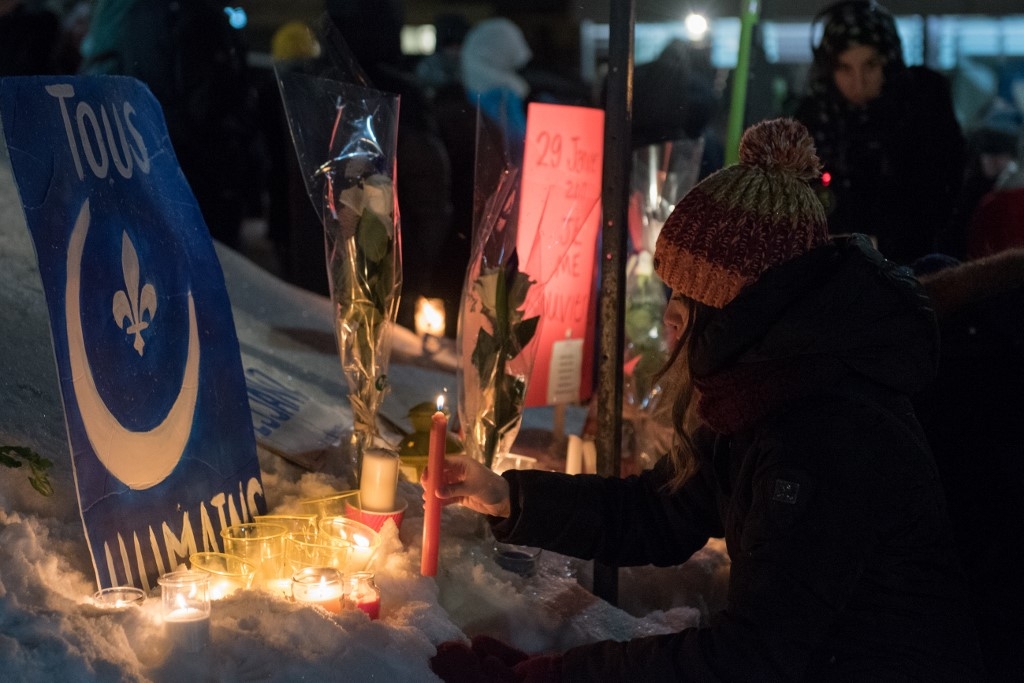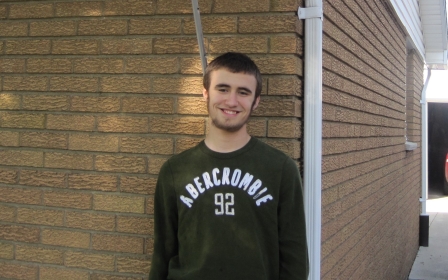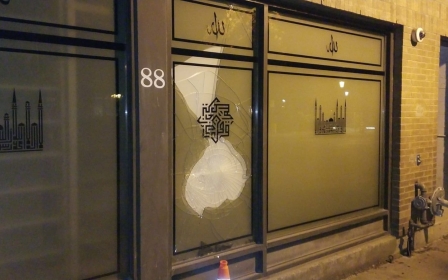Canada: Quebec court reduces mosque shooter's sentence

The man who shot and killed six worshippers at a Quebec city mosque three years ago has received a reduction in his sentence and will be eligible for parole in 25 years, after Quebec's Court of Appeals said that the shooter had received a "cruel and unusual punishment".
In a ruling on Thursday, the appeals court said that the original sentence for Alexandre Bissonnette, two life sentences without the possibility of parole for 40 years, was against the country's Charter of Rights and Freedoms and did not protect against cruel and unusual punishment.
New MEE newsletter: Jerusalem Dispatch
Sign up to get the latest insights and analysis on Israel-Palestine, alongside Turkey Unpacked and other MEE newsletters
"This nonsense cannot survive and constitutes, in itself, cruel and unusual punishment, degrading because of its absurd nature," the justices wrote about the idea of giving two consecutive life sentences.
Bissonnette, 31, pleaded guilty last year to six counts of murder and six counts of attempted murder after the shooting at the Quebec Islamic Cultural Centre on 29 January 2017.
He opened fire in a crowded room at the Quebec City mosque shortly after evening prayers, killing six Muslim men: Aboubaker Thabti; Abdelkrim Hassane; Khaled Belkacemi; Mamadou Tanou Barry; Ibrahima Barry; and Azzedine Soufiane.
Nineteen others were wounded in the attack.
The mosque shooting sent shockwaves across the country. The victims' families and Muslim advocacy groups have said no sentence can diminish the pain of the attack.
Prosecutors had originally called for Bissonnette to receive 150 years in prison, six 25-year sentences for each person he killed. Superior Court Justice Francois Huot settled on 40 years without parole.
Boufeldja Benabdallah, one of the founders of the Quebec Islamic Cultural Centre where the attack took place, told CBC that the reduction in the sentence sends a wrong message when it comes to preventing future attacks.
"We would have liked a definitive sentence to prevent other attacks from taking place," Benabdallah told the news agency.
"We're not thinking of only ourselves but of all Quebec society."
'Selective justice'
While Quebec prosecutors have yet to state their intent to appeal against the decision, the Court of Appeals' ruling may have a lasting impact on future murder cases.
In Canada, a life sentence allows for parole eligibility after 25 years, and in 2011 this law was amended to allow for judges to hand down consecutive - instead of concurrent - life sentences for multiple murders. This law also allowed for the period in which a person can apply for parole to be extended.
'Today's court decision deepened their wounds, inflamed a sense of injustice in the community, & sends message of selective justice'
- Muslim Association of Canada
Consecutive sentences have only been applied a handful of times in Canada, including a judge handing down a 75-year prison sentence to a man who pleaded guilty to killing three police officers in 2014.
As it stands, the ruling applies only in Quebec, but, if appealed, the case could be taken up to the Canadian Supreme Court, which would then put the issue of multiple life sentences on the national stage.
Members of the Canadian Muslim community were appalled at the ruling and said that it ended up hurting the victims' families even more.
"Our hearts & prayers go out to the victims, families & friends who lost their loved ones in the Quebec City Mosque shooting. Today's court decision deepened their wounds, inflamed a sense of injustice in the community, & sends message of selective justice," the Muslim Association of Canada said on Twitter.
Middle East Eye delivers independent and unrivalled coverage and analysis of the Middle East, North Africa and beyond. To learn more about republishing this content and the associated fees, please fill out this form. More about MEE can be found here.





